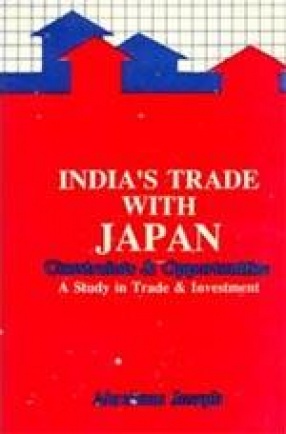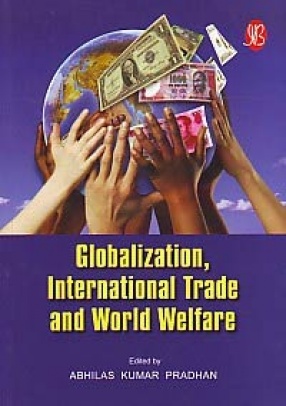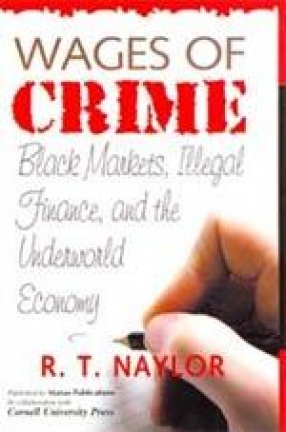Dr. Abraham Joseph studies the constraints and opportunities for India to diversity exports to Japan between the first and Sixth Plan periods. He explains that a high concentration of non-manufactured exports to Japan is not a desirable element as it causes instability in export earnings in the shortrun, while the rate of return in the long run would decline. Examining the possibility for India to switch over to a new trading framework with Japan in manufacturers, Dr. Joseph states that with India’s rich factor endowments, it was possible for India to over into this framework. However, during this period, the author demonstrated that production efficiency in Indian industries had inhibited industrial production factors had militated against an expansion of export manufactures. Unless these internal barriers are eliminated, it will be difficult for India to compete in the Japanese market, no matter how low levels of protection may be. The study draws implication from experience of newly industrialized countries in their trade with Japan rapidly is that the trade flow among them has been stimulated by the technology transfer and foreign investment by Japan into these countries. Until 1980s, India’s policies were not adequately harmonized with Japan’s Overseas Investment Policy and for this reason too, among others, no substitution of the Indian Industry in place of Japanese industries have taken place. The study concludes that as Japan moves into the 21st century, many more of Japan’s labour intensive manufacturing industries will enter the re-import stage of its industrial development and will transfer technology and investment overseas. Dr. Joseph suggests India to invite Japan’s technology and investment in those specific manufacturing industries as it has major economic advantages.
India’s Trade with Japan: Constraints and Opportunities
$9.00
$10.00
In stock
Free & Quick Delivery Worldwide
All orders amounting to US$ 50 or more qualify for Free Delivery Worldwide. For orders less than US$ 50, we offer Standard Delivery at $14 per book.
ABOUT THE AUTHOR Abraham Joseph
Dr. Abraham Joseph did his early part of education in Singapore and at Trivandrum India. He graduated in economics from the University College, Trivandrum and received Master’s and Doctorate degrees from the Department of Economics, Aligarh Muslim University, India. To study on the theme of “Problems and Prospects of India’s Trade with Japanâ€, he was awarded fellowships by the Indian Council of Social Sciences, New Delhi and the Japan Foundation, Tokyo. Dr. Joseph was appointed in 1980 as Consultant to the India-Japan Study Committee and International Economic Division, Planning Commission, Government of India. In 1982, he took charge, as the Head and Deputy Secretary of the Foreign Trade Department in FIEO, a Ministry of Commerce organization, engaged in the task of export promotion activities. In 1983, he was appointed Assistant Economic Adviser of the Indian Investment Centre, a Ministry of Finance organization, involved in the promotion of technology transfer and foreign private investment into India. During the course of his assignment in the Centre he was nominated to serve on national expert Committees relating to foreign trade and foreign investment which included: Task Force Committees to identify knowledge based industries for Export (Ministry of Science and Technology), Territorial Committee (FIEO), Export Council (Standing Conference on Public Enterprises) and Centre’s representative member on Government of India’s Board for Approval Kandla Free Trade Zone and Board for Approval, hundred per cent export-oriented units. For the Centre, Dr. Joseph had also prepared and assisted in the preparation of several publications which included, ‘India and Japan. Retrospect and Prospects, for Bilateral Economic Cooperation.
reviews
0 in total
Review by Anonymous
Be the first to review “India’s Trade with Japan: Constraints and Opportunities” Cancel reply
You must be logged in to post a review.
Bibliographic information
Title
India’s Trade with Japan: Constraints and Opportunities
Author
Edition
1st ed.
Publisher
ISBN
8121201098
Length
xiv+248p., Figures; Tables; Bibliography; Index; 23cm.
Subjects
similar bookssee more
Wages of Crime: Black Markets, Illegal Finance and the Underworld Economy
“ Never in history has ...
$28.80
$32.00





There are no reviews yet.